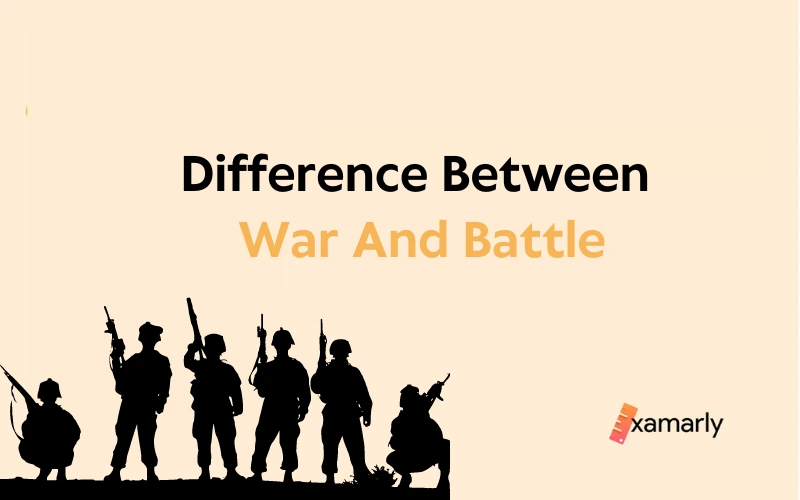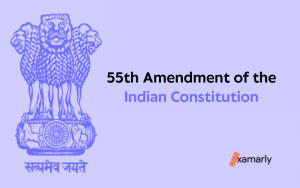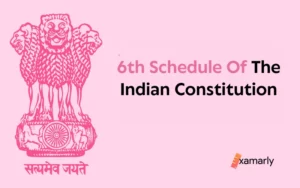An Overview
Welcome to our blog on the difference between war and battle. In this blog, we will explore the topic of armed conflicts between nations or different groups within a nation. We will define what war and battle are, understand the concept behind them, provide examples of both throughout history, discuss the factors that contribute to their outbreak, explore the effects they have on individuals and societies, and examine the different types of wars and battles.
Additionally, we will also explain the difference between war and battle. Join us as we delve deeper into this complex and often devastating issue.
- An Overview
- War
- Definition Of A War
- Understanding The Concept Of Wars
- Examples Of Wars
- Factors That Contribute To Wars
- Effects Of Wars
- Types Of Wars
- Battle
- Definition Of A Battle
- Understanding The Concept Of Battles
- Example Of Battles
- Factors That Contribute To Battles
- Effects Of Battles
- Types Of Battles
- Difference Between War and Battle
- Summing Up
- FAQs Related To Wars And Battles
- Are Wars And Battles Distinct From Each Other?
- What Is The Main Cause Of War?
- How Can War Be Prevented?
- What Is The Role Of The Military In War?
- What Are The Different Types Of War?
- What Is The Impact Of War On Civilians?
- How Does War Affect The Environment?
- What Are Some Examples Of Famous Battles In History?
- What Are The Causes Of Battles?
- What Are The Effects Of Battles On Soldiers And Civilians?
- Can Battles Be Prevented?
War
Wars have been a part of human history since ancient times. They are large-scale conflicts between nations or groups, often involving the use of military force.
In the following sections, we will explore the definition and concept of wars, provide examples, discuss the factors that lead to wars, examine the effects of wars, and discuss the different types of wars.
Definition Of A War
A war is a large-scale conflict between nations or groups that involves the use of military force. Wars can be fought for a variety of reasons, including economic, political, or ideological disputes. They can also be fought to defend against an aggressor or to gain control of territory or resources.
Understanding The Concept Of Wars
Wars are not just about physical combat, but also about strategy and politics. Countries and groups go to war to achieve specific objectives, such as gaining control of territory or resources or defending against an aggressor.
Wars also have political and economic ramifications, as they can lead to changes in government and have a significant impact on a country’s economy.
Examples Of Wars
Throughout history, there have been many examples of wars. Some of the most notable include:
- World War I (1914-1918) was a global war that involved the majority of the nations of the world, including all of the great powers. It was fought between the Allied Powers and the Central Powers.
- World War II (1939-1945) was a global war that was primarily fought between the Axis powers and the Allies.
- The Vietnam War (1955-1975) was a conflict between the communist government of North Vietnam and the government of South Vietnam, which was supported by the United States and other anti-communist countries.
- The Gulf War (1990-1991) was a conflict between Iraq and a coalition of countries led by the United States, in response to Iraq’s invasion of Kuwait.
Factors That Contribute To Wars
There are a variety of factors that can lead to wars. These include economic, political, and ideological differences, as well as the desire for control of territory or resources. Some other factors that can contribute to the outbreak of war include:
- Nationalism: Strong feelings of national pride and the desire to protect one’s country can lead to conflicts between nations.
- Political ideology: Differences in political ideology can also lead to conflicts, as different countries or groups may have vastly different views on how society should be run.
- Resources: Countries or groups may go to war to gain control of important resources, such as oil or water.
- Historical grudges: Conflicts in history or perceived injustices can also lead to the outbreak of war.
Effects Of Wars
War has a wide range of negative effects on individuals, communities, and entire societies. Some of the most common effects include physical destruction, loss of life, injury and displacement of people, economic devastation, and long-term psychological trauma.
- Physical destruction: War can destroy homes, buildings, infrastructure, and natural resources, leaving communities without basic necessities like food, water, and shelter.
- Loss of life: War results in the deaths of civilians and military personnel. This can have long-lasting effects on communities and societies, as families and loved ones are left without their loved ones.
- Injury and displacement of people: War can result in injury and displacement of people, as they flee from the violence. This can lead to a loss of livelihoods, as well as physical and emotional suffering.
- Economic devastation: War can have a devastating effect on the economy of a country, as it destroys infrastructure and disrupts trade and commerce. This can lead to long-term poverty and unemployment.
- Long-term psychological trauma: War can result in long-term psychological trauma for those who experience it, as well as for future generations. This can include conditions such as post-traumatic stress disorder (PTSD), depression, and anxiety.
Types Of Wars
- International war: War between different countries or sovereign states.
- Civil war: War within a country between different groups or factions.
- Revolutionary war: War fought to overthrow a government or political system.
- Insurgency: An armed rebellion against an established government or authority.
- Guerilla warfare: A type of irregular warfare in which small groups of fighters use tactics such as ambushes and sabotage to fight against a larger, more conventional enemy force.
Battle
A battle is a large-scale fight or confrontation between armed forces or groups. It is a military engagement that typically involves the use of weapons and results in significant loss of life and destruction of property.
Definition Of A Battle
A battle is defined as a fight between two or more armed forces or groups. It is a military engagement that is fought for a specific purpose, such as to gain control of a territory or to defeat an enemy.
Such types of combat can take place on the land, sea, or in the air, and they can range in size from small skirmishes to large-scale engagements involving thousands of troops.
Understanding The Concept Of Battles
Battles are a fundamental aspect of human history and have shaped the world we live in today. They are fought for a variety of reasons, such as to gain control of territory or resources, to defend against an enemy, or to impose a particular ideology or political system.
To understand the concept of these, it is important to consider the factors that lead to them. These can include political and economic factors, such as competition for resources or ideological differences, as well as social and cultural factors, such as ethnic or religious conflict.
Example Of Battles
Some of the most famous battles in history include the Battle of Waterloo, which was fought in 1815 and resulted in the defeat of Napoleon Bonaparte, the Battle of Gettysburg, which was fought in 1863 during the American Civil War, and the Battle of Normandy, which was fought in 1944 during World War II.
In the Indian context, an example is the First Battle of Panipat which was fought in 1526. A more recent example of includes the Battle of Fallujah in 2004, which was fought during the Iraq War.
Factors That Contribute To Battles
There are several factors that contribute to the outbreak of battles. Some of the most important include:
- Political factors: These can be fought to gain control of territory or resources, impose a particular ideology or political system, or defend against an enemy.
- Economic factors: These can be fought over access to resources such as oil, water, or food.
- Social and cultural factors: These can be fought over ethnic or religious differences, or to defend against perceived threats to a particular culture or way of life.
- Psychological factors: These can be fought as a result of perceptions of threat or fear, or as a means of asserting dominance or power.
Effects Of Battles
They have a wide range of effects on both the people who fight in them and on society as a whole. Some of the most significant effects include:
- Loss of life: These can result in significant loss of life, both among the armed forces and civilians.
- Physical injury: These can result in physical injury, both among the armed forces and civilians.
- Psychological trauma: These can result in psychological trauma, both among the armed forces and civilians.
- Damage to infrastructure: These can result in significant damage to infrastructure, such as buildings, roads, and bridges.
- Displacement of people: These can result in the displacement of people from their homes.
- Economic disruption: These can result in economic disruption, such as the destruction of factories or other economic infrastructure.
Types Of Battles
There are several different types of battles, each with its own characteristics and effects. Some of the most common types include:
- Conventional battles: These are fought between two or more organised armed forces using conventional weapons and tactics.
- Guerilla warfare: These are fought between a small group of irregular fighters and a larger, more organised force.
- Asymmetric warfare: These are battles where the opposing forces have a significant disparity in military capabilities, such as a powerful nation fighting against a weaker non-state group.
- Urban warfare: These are battles that take place in urban areas, such as cities or towns, and often involve close-quarters combat.
- Siege warfare: These are battles where one force attempts to capture a fortified location, such as a castle or city, by surrounding and isolating it.
- Psychological warfare: battles fought using propaganda and other means to influence the attitudes and beliefs of the enemy population.
- Land battles: fought on land, typically between armies using a combination of infantry, armour, and artillery.
- Sea battles: These take place on the water, involving ships and submarines.
- Aerial battles: These take place in the air, involving aircraft.
- Cyber warfare: These take place in the virtual world, involving the use of computer networks to disrupt or damage the operations of an opposing force.
Difference Between War and Battle
The difference between war and battle has been explained in a comprehensive manner through the table given below.
| Point of Comparison | War | Battle |
|---|---|---|
| Definition | A large-scale, prolonged armed conflict between nations or societies. | A military engagement between opposing forces. |
| Scale | Involves multiple countries or regions. | Involves smaller, specific locations or forces. |
| Duration of time | Can last for an extended period of time, for years or even decades. | Typically lasts for a shorter duration of time. |
| Purpose | To achieve political or ideological objectives. | To gain control of a specific location or objective. |
| Participants | Involves large numbers of military personnel and civilians. | Involves opposing military forces. |
| Destruction | Can result in significant destruction and loss of life. | Can result in significant destruction and loss of life. |
| Tactics | Can include various tactics such as siege warfare, naval battles, and air raids. | Can include various tactics such as frontal assaults, ambushes, and raids. |
| Outcome | This can result in a change in political borders or power structures. | Can result in a change in control of a specific location or objective. |
| Diplomatic Impact | This can lead to diplomatic negotiations and treaties. | Can lead to diplomatic negotiations, but less likely. |
| International Impact | Can have a significant international impact and influence. | Can have a more localised or limited impact. |
| Economic Impact | Can have a significant economic impact, including disruption of trade and resources. | Can have a more localised or limited economic impact. |
| Human Impact | Can result in significant loss of life and displacement of civilians. | Can result in significant loss of life and displacement of civilians. |
Summing Up
- In summary, wars and battles is a complex and multifaceted issue that has shaped human history. Through this blog, we have explored the definitions, concepts, examples, factors, effects, and types of both wars and battles.
- We have seen that wars are armed conflicts between two or more nations or political entities, while battles are specific military engagements within a larger war.
- We have also examined the various factors that can lead to wars and battles, such as political, economic, and social tensions, ideological differences, and competition for resources.
- The effects of war and battles on individuals, communities, and entire societies can be devastating, including physical destruction, loss of life, injury and displacement of people, economic devastation, and long-term psychological trauma.
- In order to prevent wars and battles, diplomatic efforts, peacekeeping operations, and conflict resolution should be implemented, however, it is important to understand that it is a complex and difficult task.
Check Out Our Other Blogs:
| Difference Between Bureaucracy And Democracy | What Is The Role Of Social Media In Democracy? |
| Difference Between Communism And Democracy | Difference Between Democracy And Republic |
FAQs Related To Wars And Battles
Are Wars And Battles Distinct From Each Other?
A war is a large-scale and organised armed conflict between nations or different groups within a society. A battle is a specific engagement within a war, typically involving a clash of military forces.
What Is The Main Cause Of War?
There is no single main cause of war. Wars can result from a combination of factors such as political tensions, economic competition, ideological differences, and social tensions.
How Can War Be Prevented?
War can be prevented through diplomatic efforts, such as negotiation and diplomacy, and through efforts to address the underlying causes of war, such as poverty, political instability, and extremism. International organisations such as the United Nations also play a role in preventing war by promoting peace and security.
What Is The Role Of The Military In War?
The military plays a central role in the war, as it is responsible for executing the strategies and tactics developed by military leaders to achieve the objectives of the war. This includes deploying troops, equipment, and supplies to the battlefield, conducting offensive and defensive operations, and maintaining the logistical support necessary for the troops to carry out their missions.
The military also plays a role in intelligence gathering and analysis, as well as in the negotiation and enforcement of peace agreements. The ultimate goal of the military in war is to achieve victory for their country and protect the lives of their citizens.
What Are The Different Types Of War?
Wars can be classified into several types, including interstate wars, civil wars, revolutionary wars, and colonial wars.
What Is The Impact Of War On Civilians?
War can have a devastating impact on civilians, causing injury, death, displacement, and economic devastation. Civilians may also experience long-term psychological trauma as a result of their experiences during the war.
How Does War Affect The Environment?
War can have a significant impact on the environment, including the destruction of natural habitats, pollution, and the displacement of wildlife. Additionally, the use of weapons and other military equipment can have long-term effects on the environment.
What Are Some Examples Of Famous Battles In History?
Some examples of famous battles in history include the Battle of Waterloo, the Battle of Gettysburg, the Battle of Stalingrad, and the Battle of the Somme.
What Are The Causes Of Battles?
Battles can be caused by a variety of factors, including political, economic, and territorial disputes, ideological differences, and competition for resources.
What Are The Effects Of Battles On Soldiers And Civilians?
Battles can result in injury and death for soldiers, as well as physical and emotional trauma. Civilians may also be affected by battles, as they can result in displacement and destruction of homes and infrastructure.
Can Battles Be Prevented?
While it is difficult to completely prevent battles, diplomatic efforts, peacekeeping operations, and conflict resolution can be used to reduce the likelihood of battles occurring.






